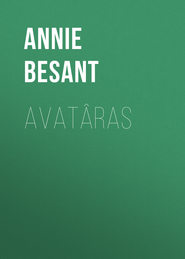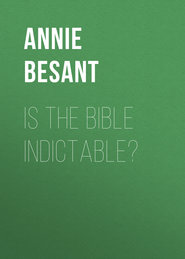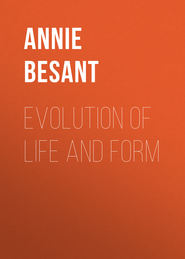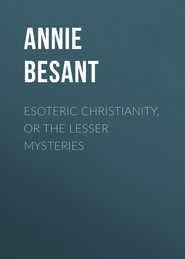По всем вопросам обращайтесь на: info@litportal.ru
(©) 2003-2024.
✖
Marriage, As It Was, As It Is, And As It Should Be
Настройки чтения
Размер шрифта
Высота строк
Поля
Both in theory and in practice advanced thinkers have claimed facility of divorce. John Milton, in his essay on "Divorce," complains that "the misinterpreting of Scripture… hath changed the blessing of matrimony not seldom into a familiar and co-inhabiting mischiefe; at least into a drooping and disconsolate household captivitie, without refuge or redemption" (p. 2), and in his Puritan fashion he remarks that because of this "doubtles by the policy of the devill that gracious ordinance becomes insupportable," so that men avoid it and plunge into debauchery. Arguing that marriage is not to be regarded merely as a legitimate kind of sexual intercourse, but rather as a union of mind and feeling, Milton says: "That indisposition, unfitness, or contrariety of mind, arising from a cause in nature unchangable, hindring and ever likely to hinder the main benefits of conjugall society, which are solace and peace, is a greater reason of divorce than natural frigidity, especially if there be no children, and that there be mutual consent" (p. 5). Luther, before Milton, held the same liberal views. Mary Wolstonecraft acted on the same theory in her own life, and her daughter was united to the poet Shelley while Shelley's first wife was living, no legal divorce having severed the original marriage. Richard Carlile's second marriage was equally illegal. In our own days the union of George Henry Lewes and George Eliot has struck the key-note of the really moral marriage. Mary Wolstonecraft was unhappy in her choice, but in all the other cases the happiest results accrued. It needs considerable assurance to brand these great names with immorality, as all those must do who denounce as immoral unions which are at present illegal.
In the whole of the arguments put forward in the above pages there is not one word which is aimed at real marriage, at the faithful and durable union of two individuals of opposite sexes – a union originated in and maintained by love alone. Rather, to quote Milton once more, is reverence for marriage the root of the reform I urge: he who "thinks it better to part than to live sadly and injuriously to that cherfull covnant (for not to be belov'd and yet retain'd, is the greatest injury to a gentle spirit), he I say who therefore seeks to part, is one who highly honours the married life, and would not stain it; and the reasons which now move him to divorce, are equal to the best of those that could first warrant him to marry" (p. 10). In the advocacy of such views marriage is elevated, not degraded; no countenance is given to those who would fain destroy the idea of the durable union between one man and one woman. Monogamy appears to me to be the result of civilization, of personal dignity, of cultured feeling; loyalty of one man to one woman is, to me, the highest sexual ideal. The more civilized the nature the more durable and exclusive does the marriage union become; in the lower ranges of animal life difference of sex is enough to excite passion: there is no individuality of of choice. Among savages it is much the same: it is the female, not the woman, who is loved, although the savage rises higher than the lower brutes, and is attracted by individual beauty. The civilised man and woman need more than sex-difference and beauty of form; they seek satisfaction for mind, heart, and tastes as well as for body; each portion the complex nature requires its answer in its mate. Hence it arises that true marriage is exclusive, and that prostitution is revolting to the noble of both sexes, since in prostitution love is shorn of his fairest attributes, and passion, which is only his wings, is made the sole representative of the divinity. The fleeting connections supposed by some Free Love theorists are steps backward and not forward; they offer no possibility of home, no education of the character, no guarantee for the training of the children. The culture both of father and of mother, of the two natures of which its own is the resultant, is necessary to the healthy development of the child; it cannot be deprived of either without injury to its full and perfect growth.
But just as true marriage is invaluable, so is unreal marriage deteriorating in its effects on all concerned: therefore, where mistake has been made, it is important to the gravest interests of society that such mistake should be readily remediable, without injury to the character of either of those concerned in it. Freed from the union which injures both, the man and woman may seek for their fit helpmeets, and in happy marriages may become joyful servants of humanity, worthy parents of the citizens of to-morrow. Men and women must know conjugal, before they can know true parental, love; each must see in the child the features of the beloved ere the perfect circle of love can be complete. Husband and wife bound in closest, most durable and yet most eager union, children springing as flowers from the dual stem of love, home where the creators train the lives they have given – such will be the marriage of the future. The loathsome details of the Divorce Court will no longer pollute our papers; the public will no longer be called in to gloat over the ruins of desecrated love; society will be purified from sexual vice; men and women will rise to the full royalty of their humanity, and hand in hand tread life's pathways, trustful instead of suspicious, free instead of enslaved, bound by love instead of by law.
Printed by Annie Besant and Charles Bradlaugh,
28, Stone-cutter Street, London, E.C.
notes
1
Since these lines were published in the National Reformer, a clause has been inserted in a bill now before Parliament, empowering magistrates to grant an order of separation to a wife? if it is proved that she has been cruelly ill-used by her husband, and further compelling the husband, in such a case, to contribute a weekly sum towards her maintenance. This will be a great improvement on the present state of things, but absolute divorce would be better than mere separation.
2
"It may suffice, in illustration of Pétion's character, to quote the touching inscription found on his tomb – 'Here lies Pétion, who enjoyed for twelve years absolute power, and during that period never caused one tear to flow.'"
3
"Boyer's resolution in this matter is the more remarkable, as he has been urged and pestered to submit to the forms of marriage. Grégoire, archbishop of Blois, and who is well known for the perseverance and benevolence with which he has, for a long series of years, advocated the cause of the African race, wrote to the president of Hayti in the most urgent terms, pressing upon him the virtue – the necessity, for his salvation – of conforming to the sacrament of marriage. To such a degree did the good old archbishop carry his intermeddling officiousness, that when Boyer mildly but firmly declined availing himself of his grace's advice, a rupture was the consequence, greatly to the sorrow of the president, who had ever entertained the greatest respect and affection for his ecclesiastical friend."










